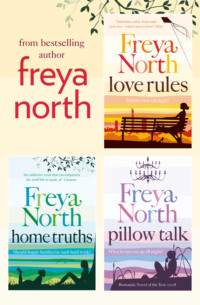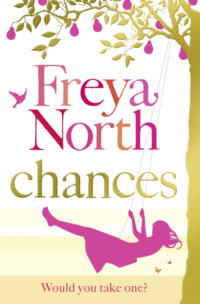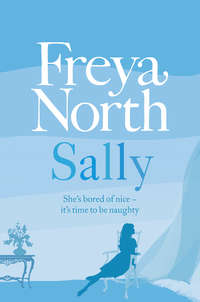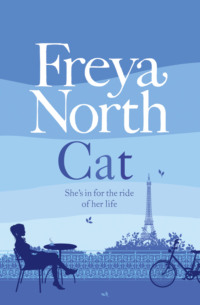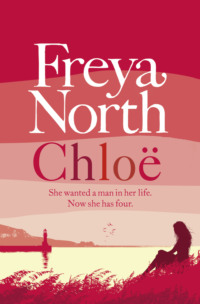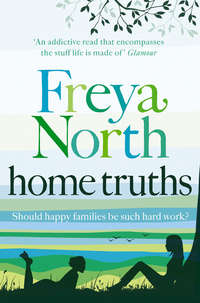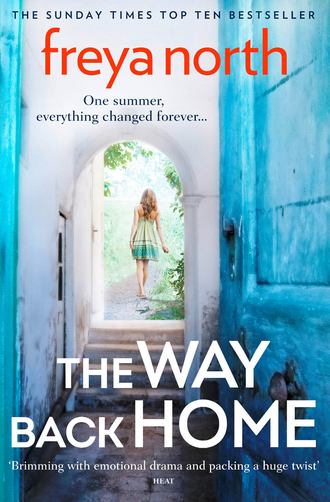
Полная версия
The Way Back Home
Alone at the table, Oriana thought about her mother. She didn’t doubt that the woman cared about her, in her own way which could be detached and could be dramatic and was always self-centred. But she knew and her mother knew that the Hathersage house was no place for her.
‘Here.’ Cat returned with the local paper. ‘Just look at this.’
An apartment at Windward was up for sale.
‘That’s the last place on earth I’d live,’ said Oriana.
‘You couldn’t afford it anyway – they go for a fortune, these days.’
They peered at the pictures which, though in colour, were grainy. The main one was of the house – obviously taken during the summer months. There were four smaller photographs of interiors. Oriana considered them for some time.
‘I’m not even sure which one this is,’ Oriana said. ‘No one had a hi-tech kitchen like that when I was there.’
‘It’s Louis’, isn’t it?’ said Django, back.
‘Is it?’ said Oriana, grieving for Louis anew.
‘Look.’ He jabbed a finger at the final photo. ‘Where’s that then?’
The girls looked.
‘The oriel windows,’ Oriana said, ‘right at the top. But it can’t be Louis’.’
They read the details.
‘How on earth did they make three bedrooms out of his apartment?’ Oriana read on. ‘Two bathrooms, one en suite?’ She looked up at Cat and Django. ‘I loved it when it was Louis’. It was my place of choice for tea. It was always so genteel.’
Django laughed. ‘Fabulous old queen.’
Oriana turned to Cat. ‘Do you remember – after school – going for toast and to do homework at his kitchen table because it was so much quieter than downstairs?’
Cat looked at the details anew. ‘I can’t believe that this is Louis’ place. And yes, of course I remember.’
‘I practically lived there during exams,’ Oriana said.
‘Well – between Louis’ and ours,’ said Cat.
‘Two bathrooms and three bedrooms,’ Oriana marvelled again.
‘Crivens,’ Django murmured at the guide price.
‘Will you visit?’ Cat asked.
Oriana looked at her with exasperation.
‘I meant Windward,’ Cat said cautiously. She thought about it. It hadn’t been so long ago that she and Django had been estranged. However temporary it had been, it was hideous at the time. Oriana looked tired. Behind the smile and the teeth-whitening and Bobbi Brown cosmetics, it took an old friend little time to detect a degree of emotional exhaustion.
‘What’s the point? I haven’t spoken to my father in years. I rarely heard from him before that anyway. And I don’t know anyone there any more.’
It was only after Oriana had left, when Cat and Django were reviewing her visit, that they realized none of them had mentioned the boys. Not once. Not even when poring over the details of the apartment that had come up at Windward. The Bedwell brothers. Malachy and Jed. And Cat wondered whether they, like Robin, were dead to Oriana too.
CHAPTER FIVE
The front door was never locked but Jed was always acutely aware how nowadays, Malachy’s was one of only three dwellings whose front door remained resolutely unlocked. Nearly all the other apartments in the old house had new security systems and even burglar alarms. Still, along the Corridor – running subterraneous through the house like a hollow crooked spine – the internal doors joining it were unlocked. That had been the very point, back at the end of the 1960s, when the pioneering group of artists and writers and musicians had rented Windward. There was to be flow, Windward ho – ideas and creativity, triumphs and failures, music and colour, characters invented and real – into and out of the rooms, through the windows, across the seasons, during the days and nights. Now, with only two of the original seven artists still living there, Windward was a quieter place. Apartments were much changed. White-collar people lived there now, quietly, privately. Music, if it could be heard at all, came in faint, civilized drifts from radios and sound systems, not resident musicians. Colour these days was polite Farrow & Ball, rollered to a perfect chalky finish; not Winsor & Newton oils squeezed direct from the tube and daubed in a glistening cacophony of hues. There was a distinction between day and night now, between your place and mine. These days, residents wouldn’t dream of entering without knocking.
Nowadays, Windward was sedate, like a peaceable old uncle whose youthful tattoos were hidden from view. Cars were either German coupes or four-wheel drives and were parked neatly, herringbone style. Not Jed’s, though. He parked as he’d been taught, when learning to drive at Windward – askew on the gravel like a skate on a turn. Malachy knew this wasn’t in defiance of the residents’ association standards, it was because Windward was still home to Jed. He couldn’t distinguish between the Windward of his youth and the place today. And he didn’t understand the importance of compliance, because there’d never been rules back then and there’d been harmony. Whenever Jed arrived, his car was flung as if he simply couldn’t bear to be in it a moment longer. Into his childhood home he’d barge, rolling into his older brother’s life, shedding bags, heading for the purple velvet sofa. Into it he’d collapse and sigh as if Bear Grylls himself would have been hard pressed to make light of such a journey home as Jed’s. Really, it should have irritated Malachy, but instead it always slightly amused him. Jed’s return to Windward was akin to that of an adventurer walking through the front door, having spent years exploring the wilds of somewhere far-flung and dangerous. Namely, Sheffield, forty minutes’ drive away.
‘Hey!’ said Jed.
Malachy was finishing off a paragraph on his laptop. Jed waited until his brother closed the lid on his work.
‘The novel?’
Malachy shrugged. He stretched and smiled. ‘Beer?’
‘Music to my ears,’ said Jed. He was now sitting with his arms outstretched as if he had beautiful girls nestling to either side. ‘I’ll get it,’ he said, energized by the thought, springing up from the sofa. He went to the kitchen and took two bottles of beer from the fridge. He noted that apart from beer, there was butter, unopened cheese and a lot of Greek yoghurt in the fridge. And not much else. He looked around. Blackening bananas. Washing-up. The cap was off the Henderson’s Relish.
‘What’s up with the cleaner?’
Malachy took the beer and had a sip. ‘I don’t have a cleaner any more.’
‘I can see,’ said Jed. ‘But why not?’ It was one luxury Jed would cut corners elsewhere in his life rather than relinquish.
Malachy shrugged.
‘What can your girlfriend think?’ Jed said, now noticing a general dustiness.
Malachy shrugged again. ‘I don’t have a girlfriend any more.’ He paused. ‘My girlfriend was my cleaner.’
Jed feared his beer might come out his nose. ‘You were shagging the cleaner?’
‘No,’ Malachy protested. ‘Well – yes. But don’t say it like that – it cheapens it. And she wasn’t “the cleaner” – she was Csilla.’
‘Was she a girlfriend who tidied up – or a cleaner who became a girlfriend?’
‘The latter,’ said Malachy.
Jed started chuckling. ‘I’m sorry. It’s just my cleaner is called Betty and she’s a hundred and forty and has whiskers.’
‘Csilla was twenty-four,’ said Malachy. ‘Hungarian, with a physics degree and a Lara Croft figure.’
‘Fuck,’ Jed murmured, impressed. ‘You’ve certainly shafted yourself – your house is a mess and your unmade bed’s empty.’ He was starting to notice that Malachy was shrugging a lot, not in an acquiescent way, but with apathy. ‘What happened then? Did she no longer tickle your fancy with her feather duster?’
Malachy watched his brother laughing. He’d humour him, he decided, as he went back to the kitchen to fetch another beer. ‘She stole from me,’ he called through.
From the silence which ensued, he knew he’d wiped the smile off Jed’s face. He sauntered back, whistling; gave his brother another bottle and then sat himself down in their father’s Eames lounger and put his feet up on the footstool.
‘Fuck,’ said Jed. This was awful. ‘What did she take?’
‘Nothing in the end – because I intercepted it. I knew something wasn’t quite right but I couldn’t work out what. So I left for the gallery with a kiss on the cheek – then returned an hour later hoping to catch her so we could talk. Actually, that’s a lie. I returned hoping to catch her at it – at something – red-handed. Like in a bad film.’ He paused. ‘I laughed at the thought of finding her with some young buck, in flagrante, to justify my hunch. Instead, I found her and some sleazy-looking bastard loading up stuff into packing boxes. Our stuff – Dad’s.’
‘Fuck.’
Malachy looked at him. ‘You’re a bit impoverished when it comes to expletives, buddy.’
‘Shit. Wish I’d known.’ Jed thought, Malachy’s going to shrug now. And Malachy did. ‘A thought – did you continue paying her once she was your girlfriend?’
‘Caveat emptor?’ said Malachy.
‘It’s just – out of the two of us – when it comes to girlfriends you’re always so much more –’ Jed struggled for the right word. ‘Discerning.’ He wanted to say cynical.
‘I reckon it was a long-held game plan of hers,’ Malachy said, as if it was just one of those things.
‘Wouldn’t anyone have seen? Seen Lara Croft trying to make off with your things?’
‘You forget, Jed – it’s not like it was. People live here but they don’t work from here. During the day, there’s rarely anyone around. Paula’s in and out – but she’s not in the main building. And the two who are still here – they’re old.’
Jed thought for a moment. Even now, whenever he returned to Windward, he still liked to think it was all caught in a time warp, that everyone would be here, that everything would be just so. That he’d arrive and all would be preserved and someone would be playing bongos and an electric guitar would be searing from upstairs and people would be painting or being painted and everyone would be the same. No one would have left. They’d all be there, for him. As they had been. Jed blinked back to the present. This was Windward now. His parents had lived in Denmark for many years and rarely came over. There was only him and his brother and this faded, dusty place that needed a bloody good scrub.
‘So – you’ll be on the lookout for a new cleaner then,’ said Jed. ‘I should imagine.’ He wanted to perk up. He wanted to lighten the load. He didn’t want to appear rude. Poor bloody Malachy.
‘Yes,’ said Malachy, ‘I reckon I am.’
‘And a new girlfriend,’ said Jed.
‘From now on I’ll have either one or the other but not both at the same time and certainly not the same for both.’ Malachy thought about it. About Csilla. ‘To be honest, a cleaner enhances my life more, anyway. I need one more than I need a girlfriend.’
‘It’s not about need,’ Jed said quietly. And Malachy remembered how much he liked it when his brother went quiet and wise and thoughtful and astute. It was as though he leapfrogged Malachy and became the older sibling, despite being almost three years younger.
‘By the way,’ said Malachy, though it led on from nothing, ‘I’m not having the operation.’
Jed squinted down his beer bottle, as if trying to read meaning into the last slick of foamy liquid the way a fortune teller might with tea leaves. ‘Oh yes?’
‘Yes,’ said Malachy.
‘Is that wise?’
‘It’s not unwise,’ Malachy said. ‘It’s not life and death. It’s something else I don’t need. I said no more operations and I meant it. I’m too old to be vain.’
Jed thought quickly about his brother’s fixation with only wanting the things he needed. He no longer saw it – that which made strangers flinch when they saw Malachy; children stare and point. That which made some people approach and question Malachy quite brazenly; curiosity outweighing manners and decorum, voyeuristic fear putting paid to tact and basic sensitivity. And then Jed thought, despite everything, my brother is still the better-looking one, the bastard.
‘Do you want to come in to the gallery with me tomorrow?’ Malachy asked, rummaging for the Indian takeaway menu. He deftly folded it into a paper aeroplane and sent it across to Jed, where it nosedived and landed just at his feet.
Jed perused the menu though neither he nor Malachy ever veered from their choices. They both still gave the menu much attention, as if it was rude, disrespectful, not to at least say pasanda and okra and fjal out loud.
‘The usual.’ Jed launched it back at Malachy where it curved off and glided some way before crashing in to the piano.
‘So,’ said Malachy. ‘Are you coming to the gallery tomorrow?
‘Er – no,’ said Jed as if he’d considered it. ‘It’s been a busy shitefest week.’
‘Some of us also have to work weekends, you know.’
‘Some of us have our brother’s flats to tidy up and clean,’ Jed countered, nodding at the fallen menu as if it was a case in point.
‘You don’t need to do that,’ said Malachy.
And Jed said, ‘I keep trying to tell you – there’s a meaningful distinction between need and want. I want to do it.’
His younger brother was mothering him. It should have irritated Malachy. Somehow, it didn’t.
‘I might pop in,’ Jed said, because around him, he could see what was needed and he could tell that it was what his brother wanted.
CHAPTER SIX
At first it had been the emails, perforating Oriana’s return to Derbyshire and compromising the watertightness of her claim to be content to leave and happy to be back. Skype she could blank, having disabled it on her iPad. But FaceTime – she could no more ignore that than she could answering the door when she knew the caller had already seen her inside. It was almost worth switching allegiance from apples to blackberries. Oh for the days of the brick, she thought, glancing at her mother and Bernard’s hefty shared mobile phone whilst looking at her iPhone with a mixture of loathing and anxiety as it attempted to beam Ashlyn into her mother’s front room.
Over the sea and far away. Whatever the weather. Wherever you may be. Across time. At any time. A superfast highway. It’s a small world and you can’t hide. Good morning! It’s afternoon. It’s raining and cold. It’s warm and breezy. We miss you. I don’t want to know that.
Oriana had even deleted the photos which defined the contacts in her phone. If it just read ‘Ashlyn’, surely the request could be ignored, rejected more easily than if Ashlyn’s face, smiling and genial, accompanied such an invitation.
Ashlyn would like to FaceTime. Decline. Answer.
‘Oriana,’ said her mother, ‘aren’t you going to answer that?’ She said so in her ‘beggars can’t be choosers’ tone of voice that implied her socially deprived daughter ought really to invite any interaction into her life, even if only virtual.
‘Too late,’ said Oriana. But she was too late to switch her phone to silent before Ashlyn was trying again. Her mother raised her eyebrow. Bernard had two clues left in the crossword which were stumping him and the sound of the blimmin’ phone was a distraction. Not that he’d say so.
‘Oriana,’ said her mother; it wasn’t a question this time and Oriana felt herself diminish into her teenage self again. God – I’ve got to get out of here. Move. Leave.
Finally, she accepted Ashlyn’s call. She left the sitting room and went to her bedroom, the phone attempting to connect. She knew that Bernard would love to see it do so, to marvel at the technology, at this friend of Oriana’s who could bring San Francisco into his front room in Hathersage. But Oriana didn’t want them to meet, she didn’t want the crossover, she needed separation and privacy. She sat on her bed and Ashlyn, frozen in a particularly unflattering moment, gurned her way into the room fresh from breakfast in San Francisco. She had a different hairstyle. In the three weeks since Oriana had last seen her, Ashlyn had become chestnut brown, not blonde, and mid-length flicky, not long and straight.
‘You look amazing,’ said Oriana, holding her handset so that she wasn’t entirely in shot.
‘Excuse me?’
‘You look amazing!’ she repeated.
‘I look amazing?’ Ashlyn peered close to her phone as if trying to hear better. ‘Is that what you said?’
‘Yes,’ said Oriana. And only then did she realize how quietly she was talking. She felt uneasy talking any louder. She wasn’t in the comfort of her own home, nor the neutrality of a hotel; she was in her mother and Bernard’s house. This was borrowed space compartmentalized by paper-thin walls. She was in their spare room. It suddenly struck her that nowhere on earth did she have her own bedroom any more. She watched Ashlyn, could see the bay in the background, thought of the room over there that had been hers, now the realm of someone else who might have painted over every last vestige of Oriana.
Ashlyn on a sunny Friday morning. Oriana knew exactly what she’d just had from the bakery for breakfast and how it tasted. The aroma of the coffee. The feel of the paper bag. The scrunch and dunk as she tossed it into the trash can. The sensation of the cool spring air ascending from the bay being dissipated by the sun’s warmth. Long sleeves – but sunglasses, too.
She thought back to her own lunch – breakfast now an irrelevant memory. Egg sandwiches made by Bernard, eaten with Bernard and her mum in the kitchen. Celery sticks in a pint glass filled with a little salted water. A bowl of cherry tomatoes. A bottle of salad cream. Soft white bread that stuck to the roof of the mouth. A cup of steaming builder’s tea. And non-stop talk about what’s for tea. Friday night – fish supper. Bernard had been talking about it since elevenses. I like haddock m’self, he’d said. And your mother – she’s for the fishcakes. We both like a buttered bun and these days we share just the one portion of chips. (He’d patted at his heart, to qualify.) But you have what you like, love, whatever you like. Oriana had tried to say that just then with celery fibre caught between her teeth, she couldn’t possibly decide what she might feel like that evening. But that had only encouraged Bernard to list all the fish on offer which, to Oriana, might well have been all the fish in the sea.
‘Cod!’ she’d shouted to shut him up. ‘I’ll have cod and chips, OK?’ She’d ignored her mother staring sharply at her, she’d turned away from Bernard whose expression revealed the brunt of her retort.
‘Don’t feel you need to decide now,’ Bernard had said gently, as if it would be kinder just to pretend Oriana’s snappishness hadn’t happened. ‘Gerry might have a nice piece of hake. Or even plaice. Now that’s a nice fish – and he’ll do that in breadcrumbs, not batter.’
‘Cod.’ Oh my God. ‘Cod’s good.’
‘Well, cod it is then. And will that be a medium or a large? Or you could have the large with a medium chips. Or we could have a large chips between the three of us. And another buttered bun.’
Fuck the chips. Sod the cod. Stuff your stupid buttered bun. I don’t bloody know. I’m halfway through my lunch! Why would anyone want to know what they’re going to be ordering for their tea?
However, Oriana had said nothing. She’d smiled through gritted teeth but the short, sharp exhale had cut through to Bernard like a blast of a cold, ill wind and she’d seen how he’d been taken aback, hurt even, though he’d kept his polite smile up and had rounded off the conversation with a little anecdote about cod being so last year and coley being the new black. And she’d felt appalled that, even at thirty-four, in this house with her mother and Bernard, she was helpless not to revert to a bolshie teen. Life was going backwards. That wasn’t the idea at all.
‘Oriana?’
Ashlyn. Right here, now, in this room. Perhaps she thought the call had frozen; Oriana’s thoughts had rendered her motionless.
‘Hey,’ said Oriana, suddenly remembering to look up or all that Ashlyn would see was her bowed head with roots in need of colour or a good shampoo and condition at the very least.
‘You OK, babe?’
Oriana attempted to peer at her.
‘You sound kind of remote and you look kind of –’
‘Shit?’
‘No,’ Ashlyn laughed and, inopportunely, her face suddenly froze into a grimace. Her voice, though disembodied, came through and hit Oriana squarely. ‘You look kind of – wide-eyed and lonesome.’
Even in the tiny thumbnail of herself in the top of her screen, Oriana couldn’t dispute it. Wide-eyed and lonesome. Like the lyric to a country-and-western standard.
‘I’m still jet-lagged,’ Oriana said feebly, wondering if she’d been freeze-framed like Ashlyn. She hoped so – her friend wouldn’t see through the lie.
Ashlyn was back in motion, slightly jerky, but still herself. She didn’t seem to have heard Oriana. Instead, she’d flipped the viewfinder and was treating Oriana to a panorama of the bay. Oriana flinched.
‘Homesick?’ said Ashlyn.
‘A little.’
‘So, tell me – what you been up to? You working? You been going down memory lane? Caught up with your old buddies? You been back to that old house of yours?’
Oriana thought of Windward; how the place had so quickly become the stuff of legend to her circle in California. She’d used it as a way to win friends and impress. She’d never lied. The tiniest of details were drawn from life, every daub of colour, every line from a song, every name, every event – they were all true. The only dishonesty had been the tone of voice she’d used to narrate these vignettes of her childhood and youth. She had transposed the veracity and complexity of her original emotions into a panoply of perpetual, carefree happiness. Details which might smudge or darken the picture were left out. As far as any of her friends were concerned, Oriana had been blessed by a halcyon upbringing during which she’d been nurtured by a group of artists who were as loving as they were eccentric. She was admired, envied, for having grown up in the quirkiest place in the world: a commune which made the heyday of Haight-Ashbury seem positively suburban. And Woodstock downright dull. Yes, Jimi Hendrix played Woodstock – but he had stayed a month at Windward. Tell us more about Windward, Oriana! Tell us the stories you’ve already told. Again – tell us again. Rod Stewart wrote ‘You’re in My Heart’ there? Seriously? From the top room – the one with the turret? Ronnie Wood forgot to leave? Gillian Ayres painted the walls? Tom Stoppard stayed for a summer, Faye Dunaway for the winter? How cool is that?
‘You been back to Windward?’ Ashlyn was saying with an expansive grin. ‘Has it changed? Who’s still there? Can I FaceTime you when you’re next there? Do it from the iPad – you can give me a virtual tour.’
‘I haven’t been back,’ Oriana told her.
‘You what? Why not?’
‘Not yet,’ said Oriana. ‘But funnily enough I’m going there tomorrow.’
* * *
Tomorrow is now today. Yesterday, after medium cod and chips, and a buttered bun she had only a bite from, Oriana went to bed early and didn’t mention her plans – if she didn’t say them out loud, she could still change them. Even at the last minute she could entitle herself to a turn of heart and no one would be any the wiser. She might feel like seeing Cat instead. Or going to Meadowhall and browsing the shops. Perhaps a day trip to Manchester, to see how it’s changed.
‘May I borrow your car, Mum?’ The tang of malt vinegar on yesterday’s newsprint paper still lingered in the kitchen, counteracting any appetite for breakfast. ‘For the day?’ she qualified. ‘May I borrow your car for the day?’
Rachel scoured her daughter’s face but it was Bernard who read it first and knew instinctively what to say.
‘That’ll be fine, won’t it, Rachel?’ he said, downplaying any need for qualification.
‘Why?’ said her mother. ‘Where are you going?’
Bernard, though, stepped in quickly again. ‘We said we’d take the Vauxhall to Wakefield, didn’t we? We’ll not need Your Car.’
They had the two cars. His was called the Vauxhall. Rachel’s was called Your Car. He looked at Oriana. ‘We’re off to visit the Bennets,’ he said, with a quick complicit smile. He turned to his wife. ‘Oriana can take Your Car.’ He turned back to Oriana. ‘You take your mother’s car, love. You’re on the insurance – you may as well get your premium’s worth.’ He put a lump of sugar into his mug of tea and looked at his wife again. ‘It’s a good idea. It gets her out and about a bit. It’s a lovely day. We don’t want her to feel obliged to join us – on our trip to Wakefield. In the Vauxhall.’ He looked at Oriana. ‘And much as I know the Bennets would love to meet you – well, sitting around listening to us old folk gab – it’s no place for a young woman on the first Saturday in April. A fine one at that.’ He paused. Glanced from Rachel to Oriana while both women stared at him, stunned that he could be at once so subtle yet conniving.


